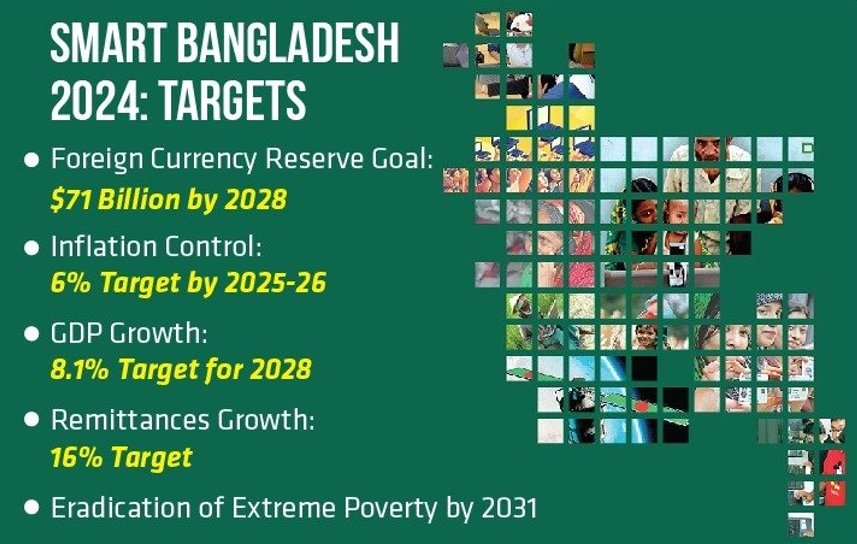The maiden session of the 12th parliament began at 3 pm on Tuesday (30 January) with Deputy Speaker Shamshul Huq Tuku in the chair. Shirin Sharmin Chaudhury and Shamsul Haque Tuku will continue in their post as Speaker and Deputy Leader of the House as the Awami League parliamentary party in a meeting has already nominated them for this post.
The Business Advisory Committee of the new parliament formed today with the new speaker as its head. The committee decided the tenure of the inaugural session and other businesses of parliament. President Mohammed Shahabuddin convened the first parliament session of 2024, exercising the power bestowed upon him as per Article 72 (1) of the Constitution. Members of the new parliament took the oath of office on Jan 10. Custom dictates that the first session of parliament be started within 30 days of the official announcement of election results. The ministers and state ministers of the new cabinet headed by Prime Minister Sheikh Hasina were sworn in on Jan 11.
You can also read: PM Hasina Woos British Investors with Exclusive Zone!
The new parliament was formed through the January 7 election, with new hopes and challenges to transform Bangladesh into a Smart and Developed Bangladesh amid global economic and geopolitical turmoil. Bangladesh Awami League under the leadership of Prime Minister Sheikh Hasina formed the government for a fourth straight time with a people’s mandate. But this time, independent candidates make history securing a record 62 seats of out 299. Voting in Naogaon-2 was postponed following the death of a candidate. The election for the constituency is set to be held on Feb 12.
Awami League bagged 223 seats while former opposition party, Jatiya Party wins 11 seats and smaller parties including Bangladesh Workers Party, Jatiya Samajtantrik Dal (JSD), and Bangladesh Kalyan Party got one seat each. Bangladesh Nationalist Party (BNP) and its alliance have boycotted the elections like in 2014 despite election commissions repetitive calls and assurance of organizing free and fair elections from both the EC and the government. Five political parties now represent the parliament while nine parties were in the 2018 parliament.
President Seeks non-violent Constructive Politics
While delivering his maiden speech at the parliament, President Mohammed Shahabuddin urged political parties to carry out non-violent constructive political programs to uphold the constitutional rights of the people and democracy in the country. “Polls boycotting parties are staging political programs fully independently . . . I hope the parties to shun the path of violence, and anarchy and conduct non-violent constructive programs for people’s welfare and democracy,” he said.
He urged the government to show restraint to maintain political stability to continue this ongoing trend of development in Bangladesh. “The democracy must have to be shaped institutionally strong and the practice of democracy will have to be spread to the grassroots for permanent and sustainable development,” he added. He stressed the need for reforming the country’s financial sector and taking necessary strict measures against all sorts of corruption.
The president urged the citizens to be more vigilant against all rumors and misinformation and said everyone should be more careful about the people’s rights and none, as if, could take away it by hatching a conspiracy. He said people expect that the country’s political parties will stand by them with a liberal and positive attitude for the smooth ways of democracy and development.
Terming this JS as ‘the bearer of all expectations of the people’, he said people hope that the parliament would play a proper and effective role in the welfare of the citizens by giving utmost importance to the people’s needs. He also thanked the Election Commission (EC) and all concerned parties such as public administration, armed forces division, law enforcement agencies, other forces, and the media for helping hold a free, fair, and impartial parliamentary election.
Referring to the 12th national parliament election as a landmark event for the country’s democracy, the president said all steps taken by the government and the election commission had been worthwhile due to the spontaneity and active participation of the common people.
What To Expect from The New Parliament?
The victorious Awami League formed the new government amid many challenges and big promises. The citizens of the country voted Awami League into power with the hope of seeing the implementation of promises that the party pledged before the polls.
The party in its Election Manifesto 2024, outlines eleven specific areas of focus. These areas encompass a range of critical objectives, including:
- The reduction of commodity prices
- Restoration of discipline in the economic sector and
- The generation of increased employment opportunities
The Election Manifesto 2024 further emphasizes goals such as:
- Ensuring universal purchasing power
- Providing practical education
- Building a technologically advanced Smart Bangladesh
- Enhancing skills in the economic sector
- Achieving balanced agricultural practices through mechanization
Additionally, the Manifesto 2024 underscores commitments to ensuring accessible healthcare for all, incorporating everyone into the public pension system, maintaining the effectiveness and accountability of law enforcement agencies, preventing communalism and terrorism, and securing the expansion of democratic governance at all levels.

The Election Manifesto aims to portray a transformative vision of the government under the leadership of the Awami League over the past 15 years. The promise of Smart Bangladesh revolves around the development, progress, and prosperity of the nation, emphasizing the creation of a smart Bangladesh through the fourth industrial revolution, incorporating the Delta Plan for the next 100 years, known as Vision 2041. Climate change will also be a significant focus, presented in a smart and concise format.
Moreover, the aim is to achieve a foreign currency reserve of $71 billion by 2028, control inflation to 6% by 2025-26, attain a GDP growth rate of 8.1% in 2028, and witness a 16% growth in remittances. A pivotal goal of the election manifesto 2024 is the eradication of extreme poverty in the country by the year 2031.


